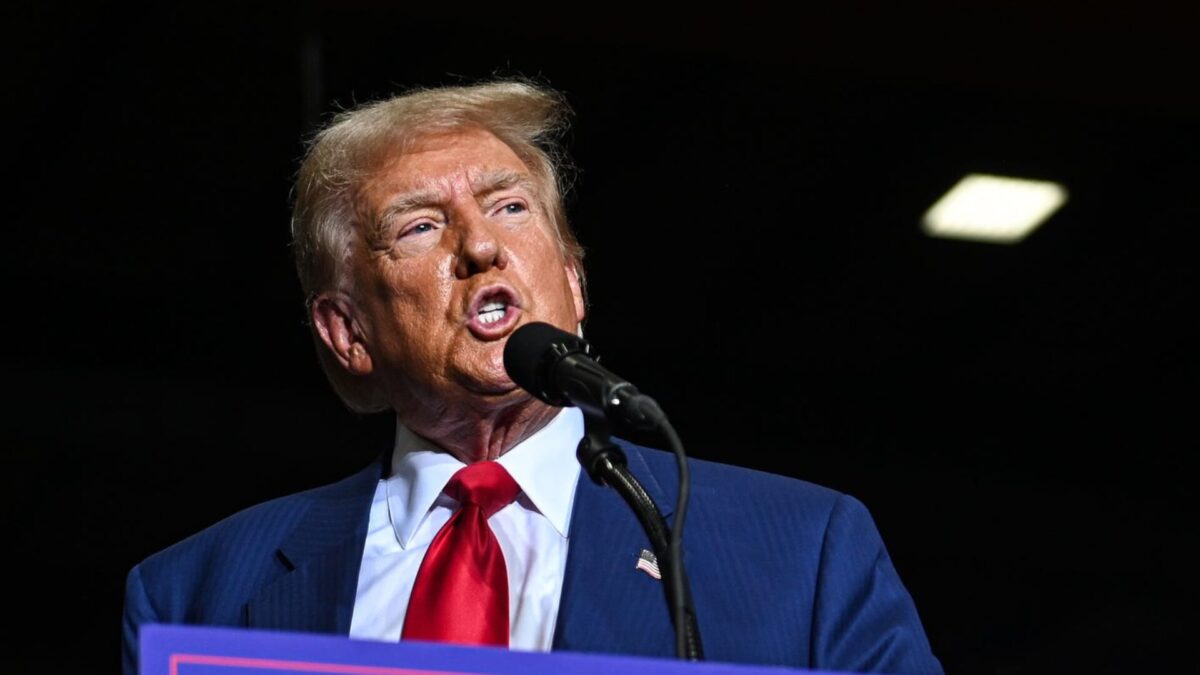The recent debate between Donald Trump and Kamala Harris showcased a significant difference in how the two candidates were treated by the moderators.
While voters expected a balanced exchange of ideas, it quickly became clear that the standards applied to each candidate were far from equal. Trump faced continuous follow-up questions and fact-checking, while Harris was allowed to respond with fewer interruptions and challenges, as reported by Fox News.

Throughout the debate, key questions about Harris’s policy positions remained unexplored. Despite her repeated claims of having a plan, her policy agenda received minimal scrutiny from the moderators. Statements she made, including references to debunked claims, were left unchecked, preventing voters from getting a comprehensive understanding of her stance on critical issues.
Trump's Sovereign Wealth Fund: What Could It Mean For Your Money?
MORE NEWS: BOMBSHELL: Trump-Russia Narrative Implodes, CIA Review Exposes Known Flaws in Intel [WATCH]
On the other hand, Trump’s responses were consistently met with interruptions and requests for clarification, creating a noticeable imbalance in how the candidates were treated.
One of the more striking aspects of the debate was the moderators’ approach. Linsey Davis and David Muir, instead of maintaining a neutral stance, appeared to create an environment where Harris was shielded from difficult questions, while Trump was forced to defend himself repeatedly.
This contrast left many viewers questioning whether the debate allowed for a fair comparison between the two candidates’ abilities and positions.
The lack of focus on Harris’s newly posted policy agenda, which some noted was similar to Joe Biden’s previous campaign material, was another missed opportunity. In a debate designed to inform voters, these omissions created concerns about whether voters received a full and transparent picture of both candidates.

This Could Be the Most Important Video Gun Owners Watch All Year
The debate wasn’t just about the candidates. It also reflected on the role of the media in shaping public perception. The moderators’ selective questioning led to criticism about media bias and fairness, with some observers suggesting that the debate did more to protect Harris than inform the public.
Greg Gutfeld criticized the debate for its handling of Kamala Harris’s policy positions, stating, “They didn’t even bother with Kamala’s newly posted policy agenda, a cut-and-paste job from Joe Biden’s old campaign website. Wouldn’t that seem relevant to a woman who kept repeating, I have a plan? It’s clear. ABC f—– the American public.”
Gutfeld further expressed his frustration with the network’s credibility, saying, “Expecting honesty from ABC is like expecting integrity from pond scum. Oh, same thing.” This sharp remark captured the widespread dissatisfaction with what many perceive as a lack of transparency in the mainstream media.
Read "GREG GUTFELD: Expecting honesty from ABC is like expecting integrity from pond scum" on SmartNews: https://t.co/07H01UboSX #SmartNews
— John Fox (@undersealover) September 13, 2024
MORE NEWS: Former NYC Mayor de Blasio Vows ‘Human Shield’ to Protect Socialist Candidate From Arrest
In the end, the debate left more questions than answers. Voters were given limited opportunities to truly compare the candidates, as one was pressed while the other was spared.
Celebrate Summer with this LIMITED EDITION Grizzly Trump Cooler! Exclusively on Mammoth Nation.
Join the Discussion
COMMENTS POLICY: We have no tolerance for messages of violence, racism, vulgarity, obscenity or other such discourteous behavior. Thank you for contributing to a respectful and useful online dialogue.